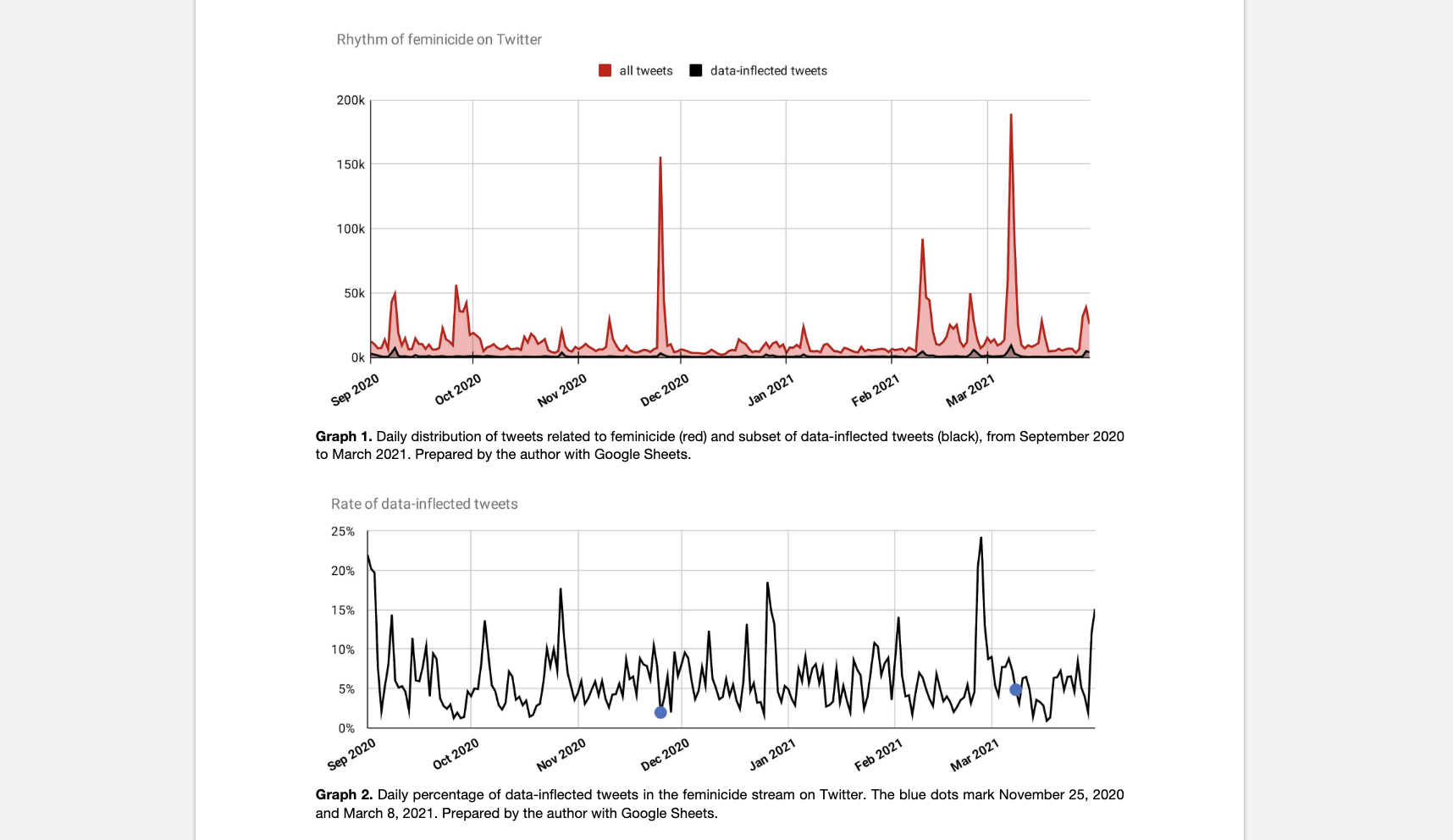Tag: featured
-
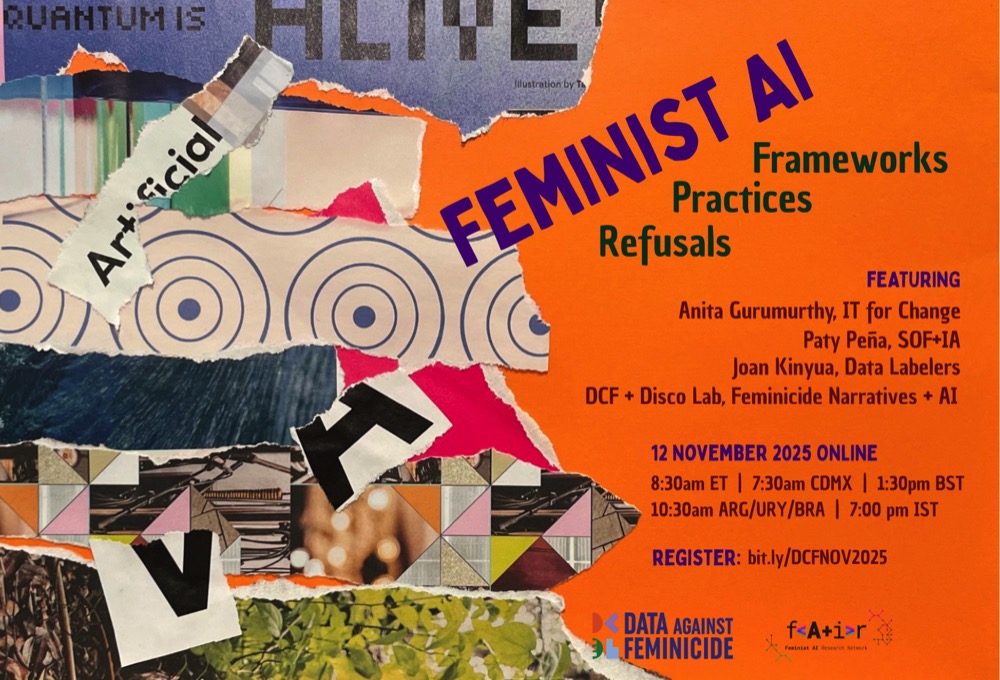
Feminist Artificial Intelligence: Frameworks, Practices, Refusals
This Data Against Feminicide (DCF) community event, organised with the Feminist Artificial Intelligence Network in Latin America and the Caribbean, explored how artificial intelligence (AI) can shape, enhance, or undermine efforts to fight against gender-related violence and feminicide. The event opened with brief introductions from the co-organisers, followed by a conceptual discussion on the promises…
-
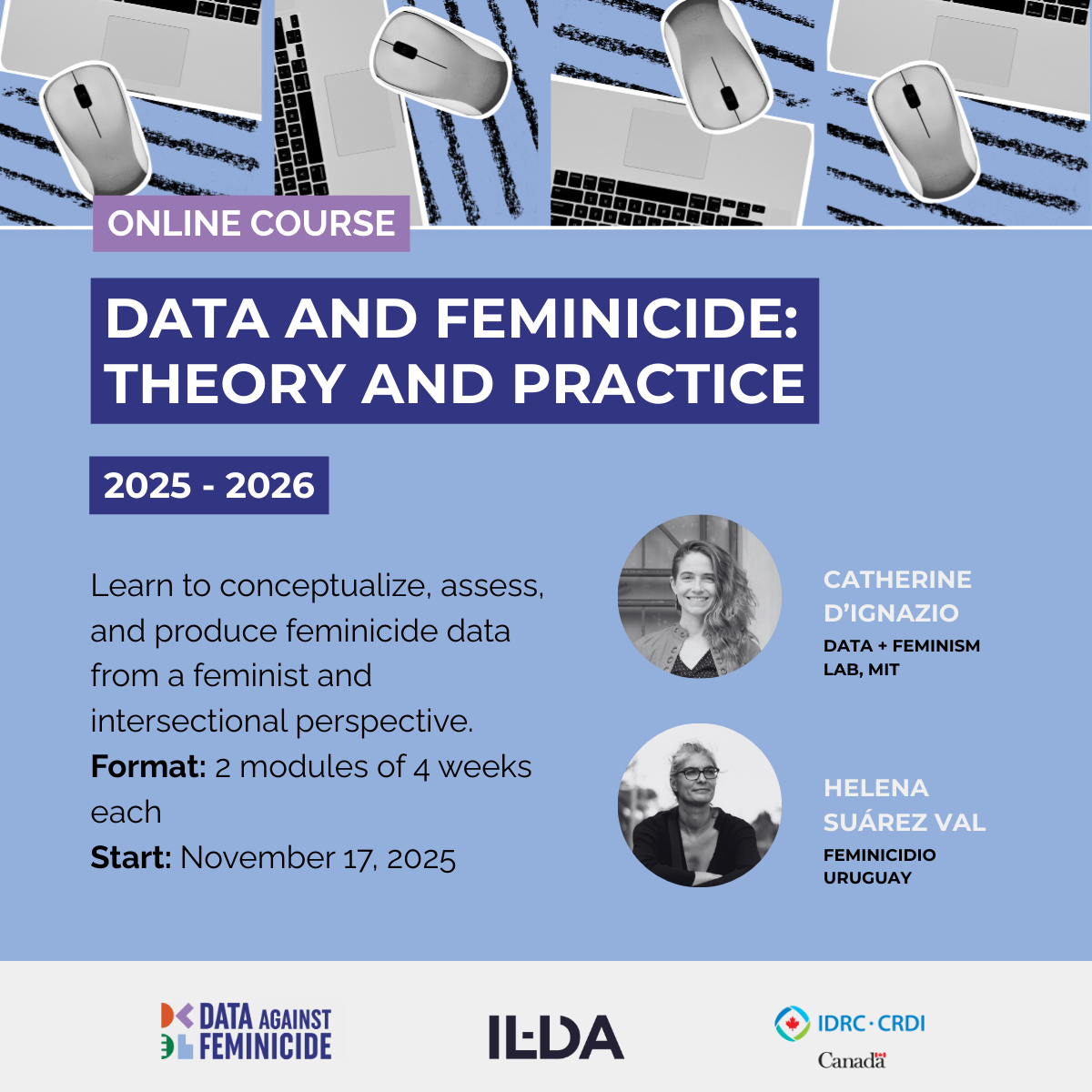
New edition of Data and Feminicide: Theory and Practice course
It took a while, but we are finally opening a new cohort of our online course: Data and Feminicide: Theory and Practice. This time it will run in English.This course aims to provide a space to deepen our understanding of data practices and technology in the struggle against feminicide. It begins by setting a solid theoretical…
-
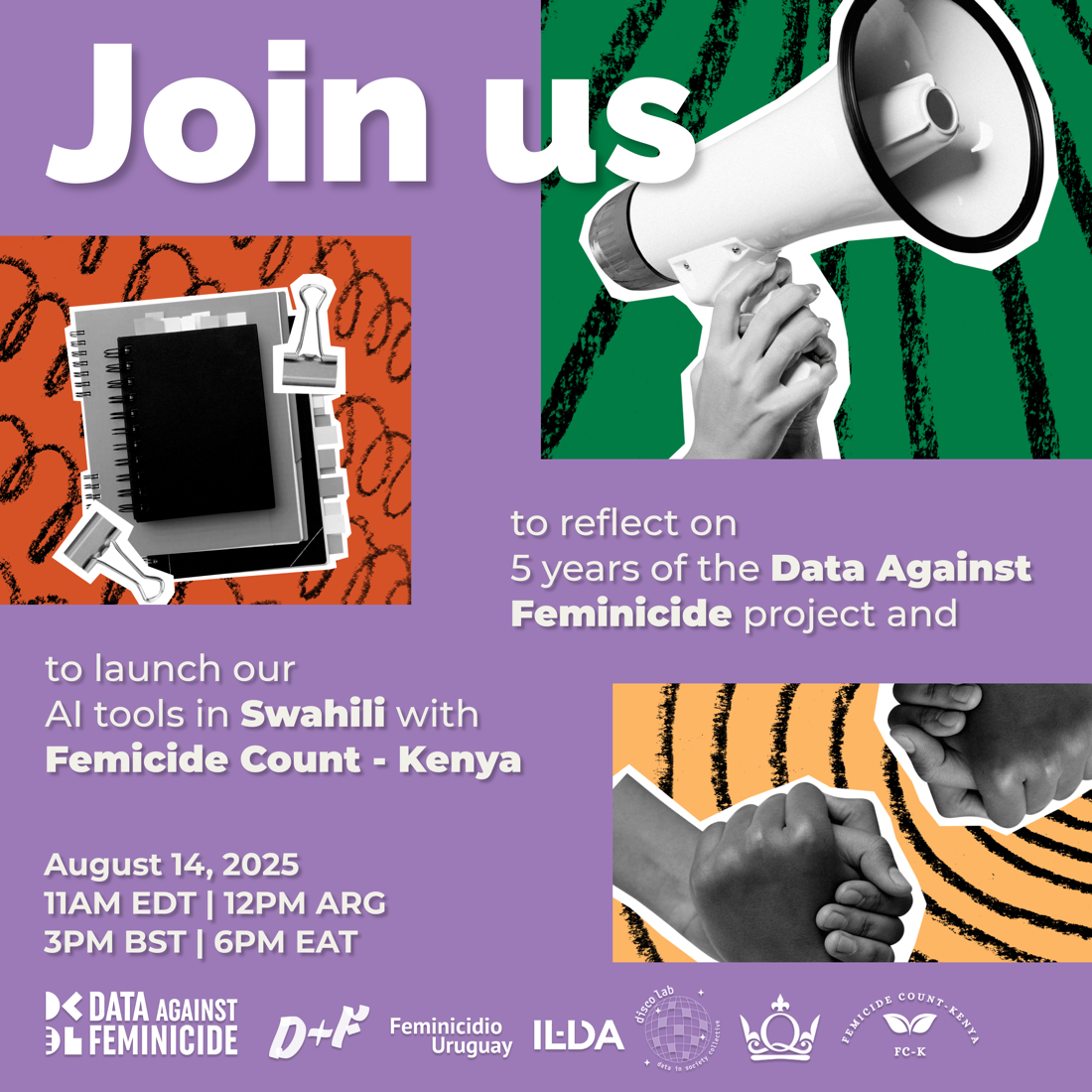
5 years of Data Against Feminicide + Launch of tools in Swahili
To celebrate 5 years since the first community events of the Data Against Feminicide project, in August 2025, we held an online gathering to look back on all we have done together and to launch the Swahili version of our tools, co-designed with the amazing Femicide Count Kenya. Alessandra Jungs de Almeida and Isadora Cruxên presented key learnings…
-

Data-Inflected Visions of Feminicide (Suárez Val, 2025)
This paper advances the notion of “data-inflected visions” to show how various visual representations may come come to be imagined as data, and how doing so opens up different meanings for the political and affective work of data. The visuality of social issues is produced through competing hegemonic and alternative visions, and conventional visualization is…
-
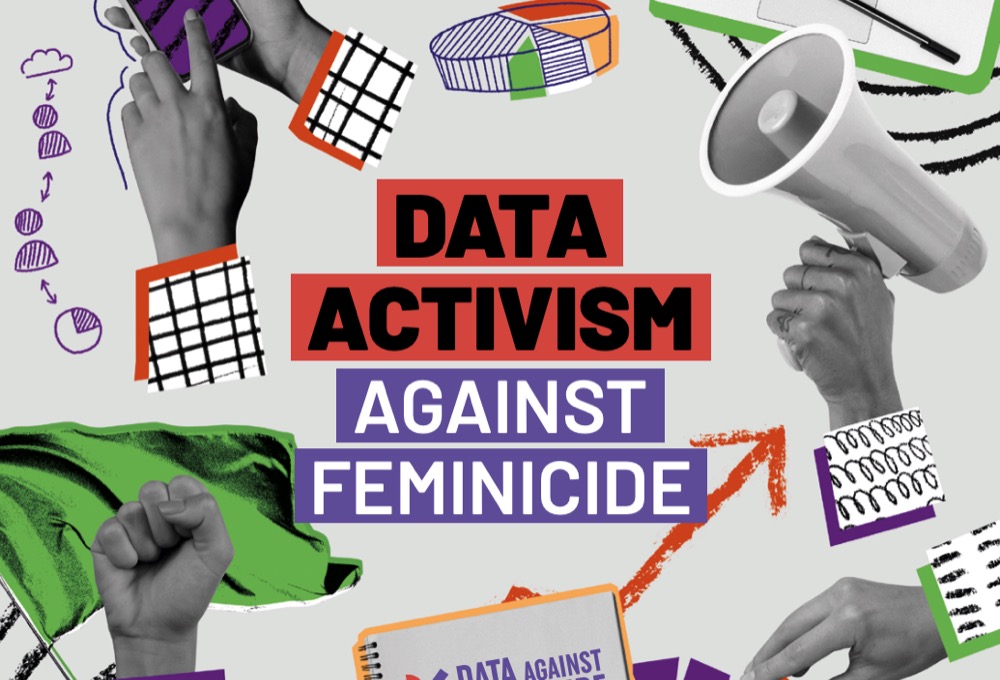
Data Activism Against Feminicide (Cruxên & Jungs de Almeida, 2024)
What role does data play in addressing gender-based violence? This report summarizes the results of five years of collective work as part of the Data Against Feminicide project. Data Against Feminicide is a South-North participatory action research and design project that supports the work of activists and civil society organizations that produce data on gender-based…
-
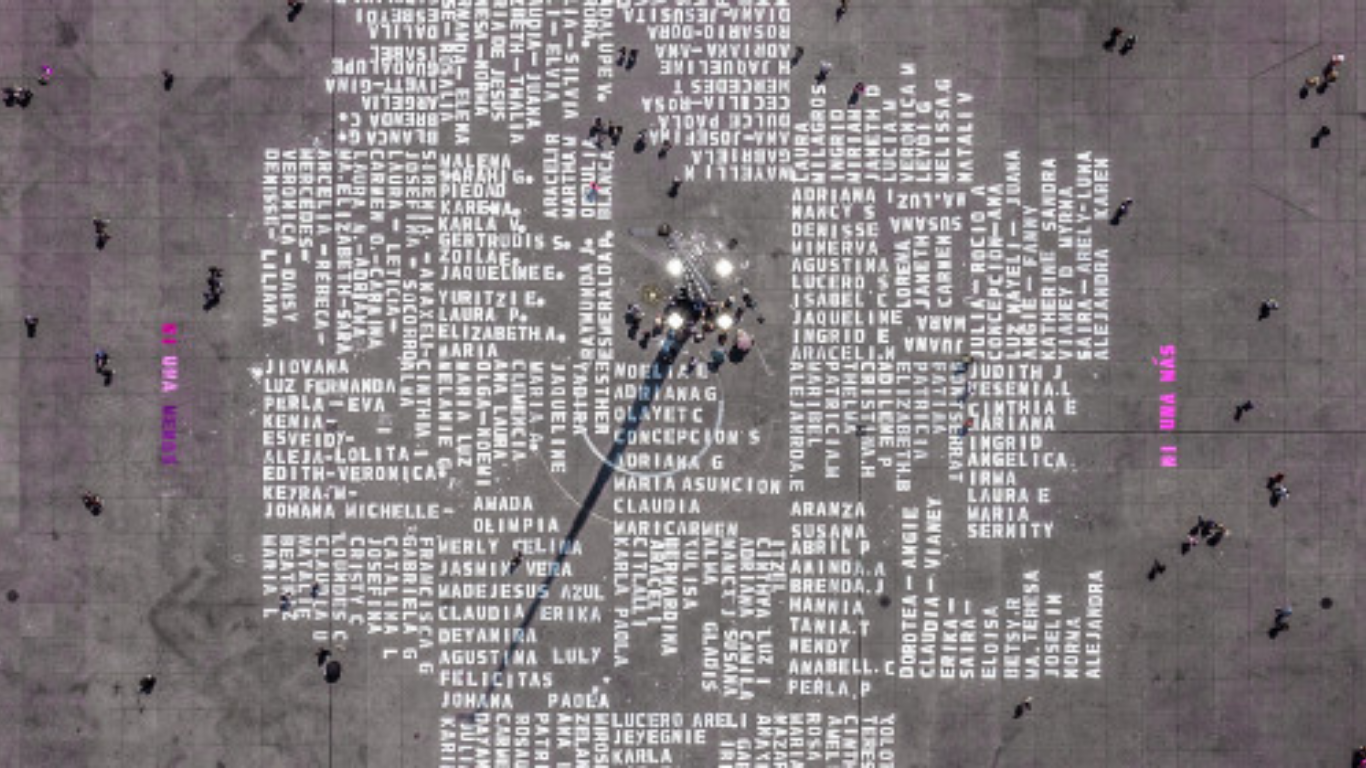
Counting Feminicide: Data Feminism in Action (D’Ignazio, 2024)
What isn’t counted doesn’t count. And dominant institutions systematically fail to account for feminicide, the gender-based murder of women and girls, including cisgender and transgender women. In the face of this failure, Counting Feminicide foregrounds the work of data activists across the Americas who are documenting these kinds of murders and challenging the reigning logic…
-
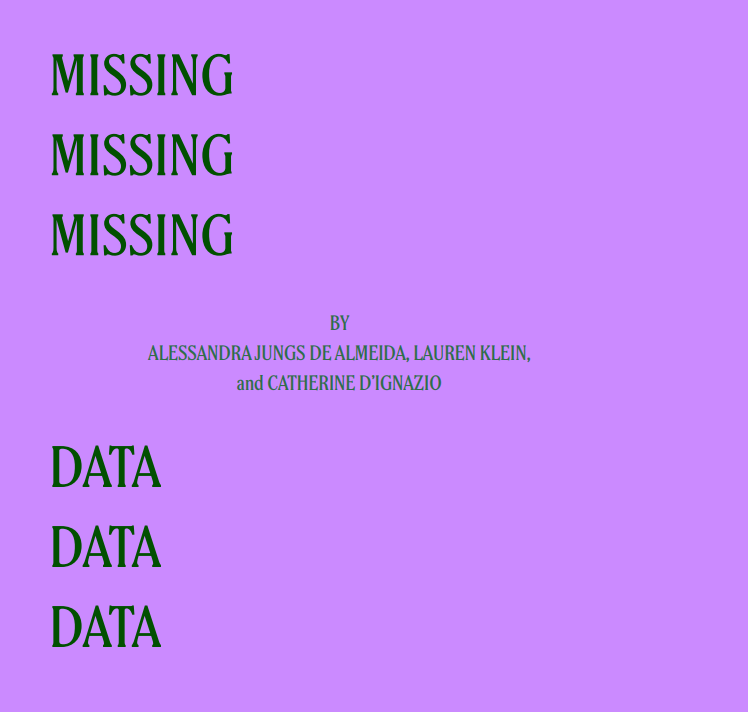
MISSING DATA (Jungs de Almeida et al, 2024)
This article explores the concept of “missing data” from a political and social perspective, rather than merely a technical one. While traditional definitions of missing data typically refer to information that is literally missing or incomplete, the approach taken here, aligned with artist and educator Mimi Ọnụọha, considers missing data as that which does not…
-

Geographies of missing data: Spatializing counterdata production against feminicide (D’Ignazio et al, 2024)
Feminicide is the murder of cisgender and transgender women and girls for gender-related reasons. It reflects systems of patriarchal and racialized oppression and reveals how territories and socioeconomic landscapes shape everyday gender-based violence. In recent decades, many community data production initiatives have emerged with the goal of monitoring this extreme yet often invisible phenomenon. We…
-
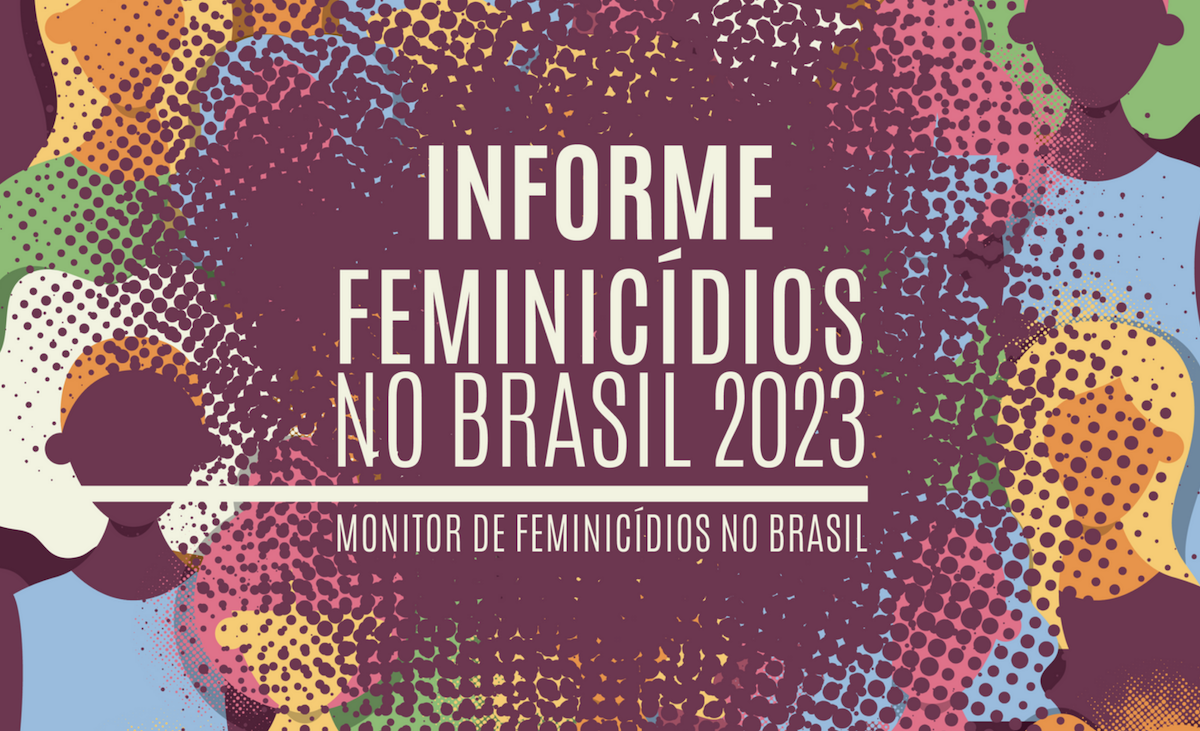
Missing data and counterdata (Cruxên et al, 2024)
Cruxên, I., Jungs de Almeida, A., Klein, L. F., & D’Ignazio, C. (2024). Dados Ausentes e Contradados. Em S. Mariano (Ed.), Informe Feminicídios no Brasil 2023: Monitor de Feminicídios no Brasil. Márcio Ferreira de Souza. https://dspace.mit.edu/handle/1721.1/157846?show=full O Monitor de Feminicídios no Brasil (MFB) é uma iniciativa do Laboratório de Estudos de Feminicídios no Brasil, formado…

